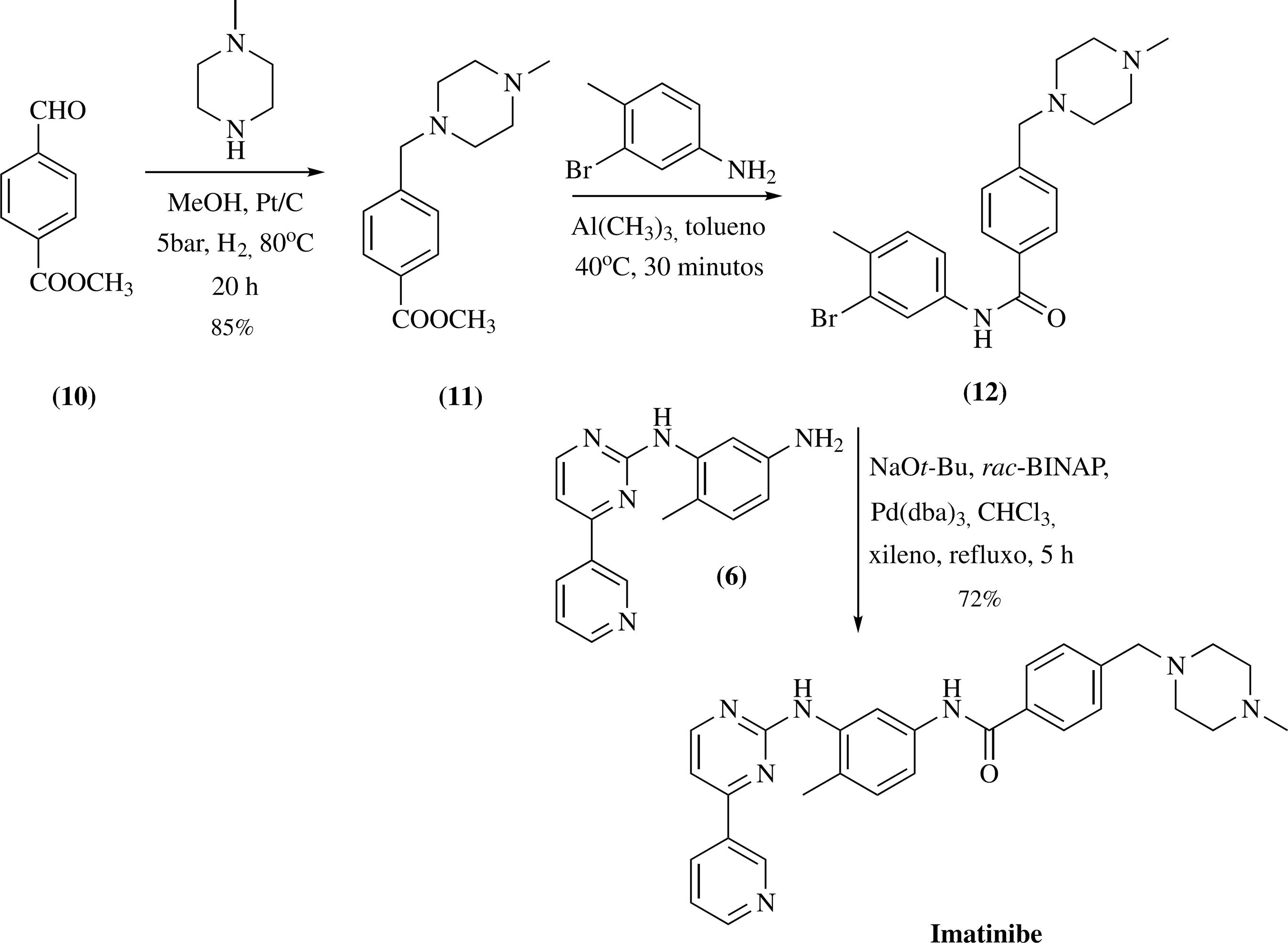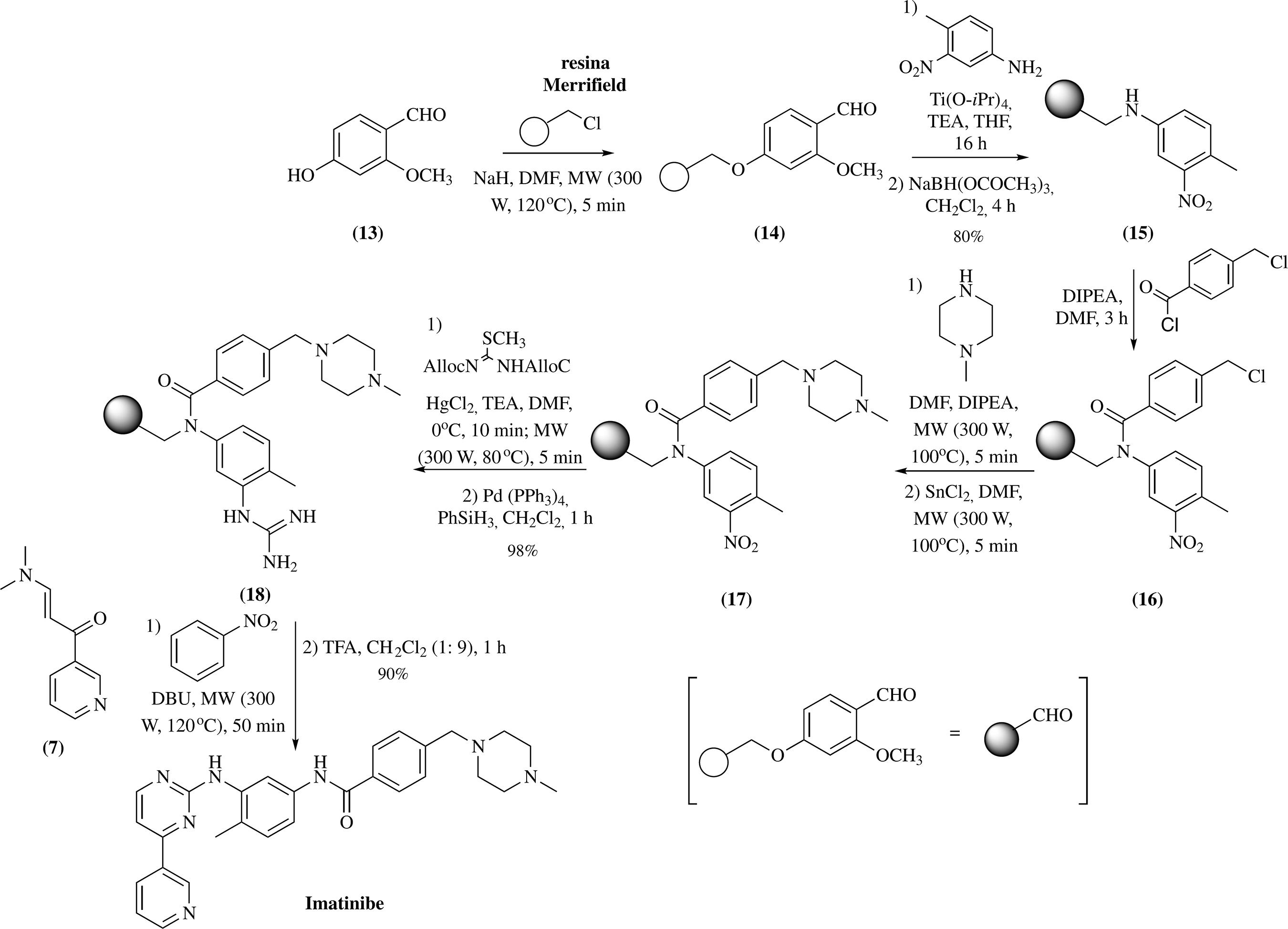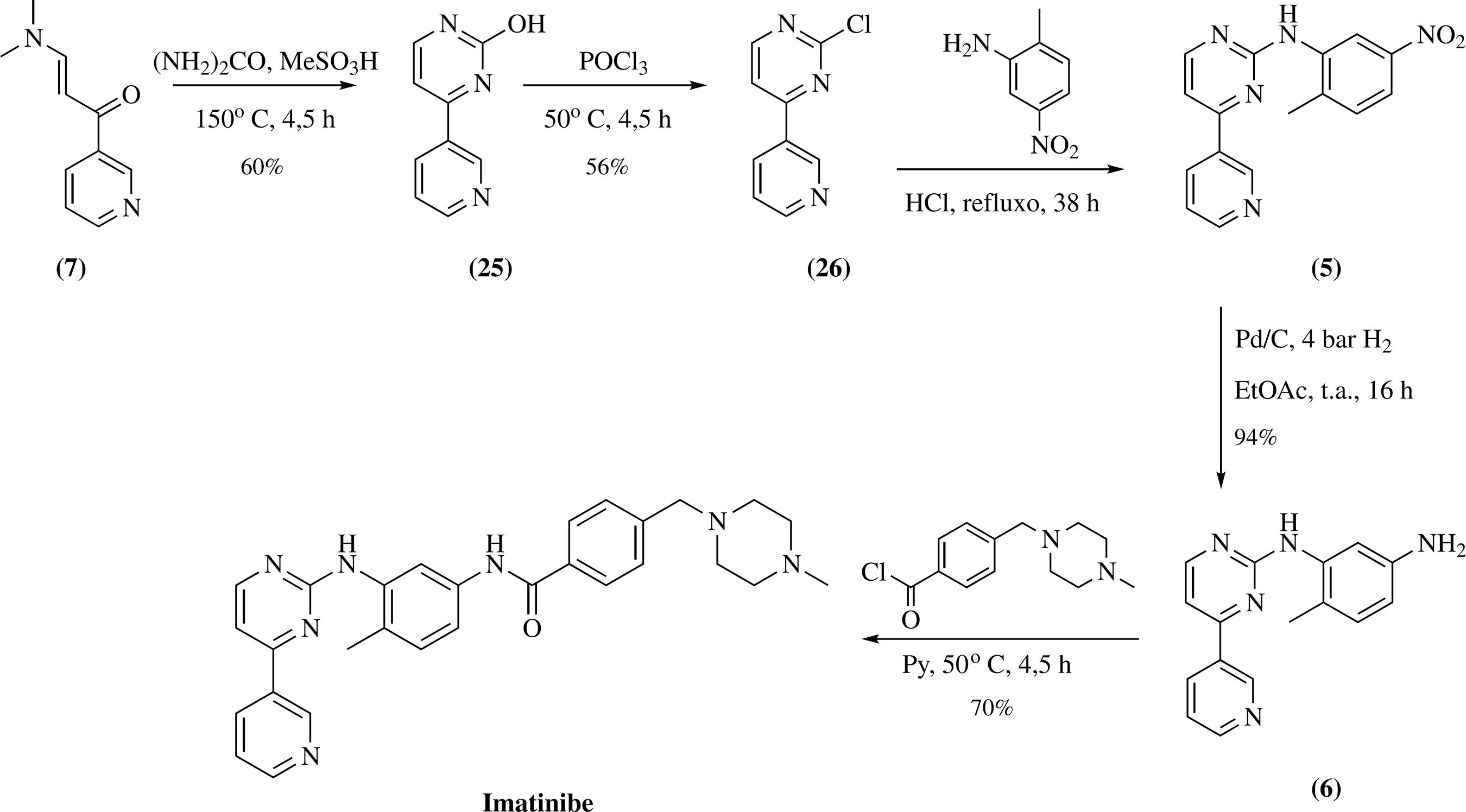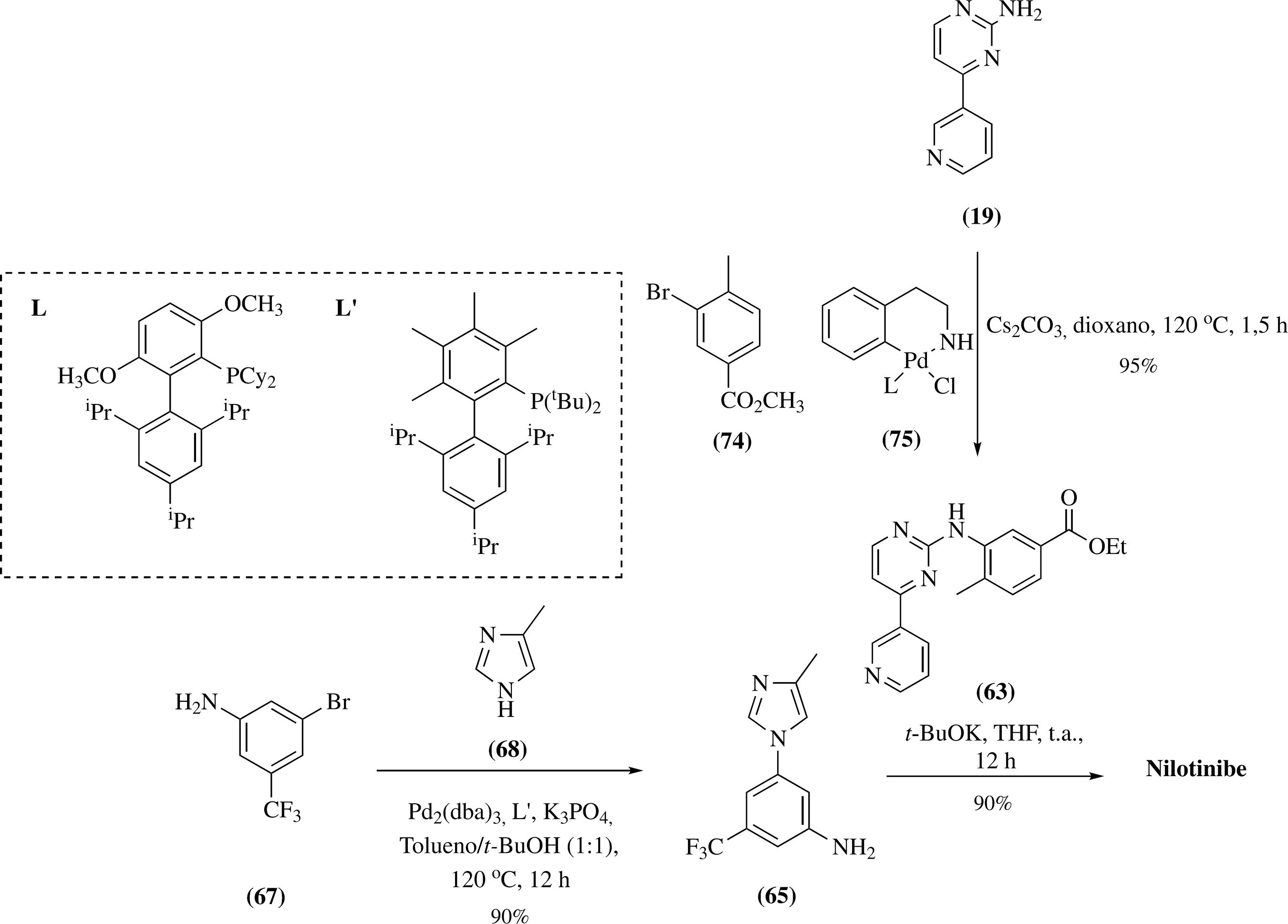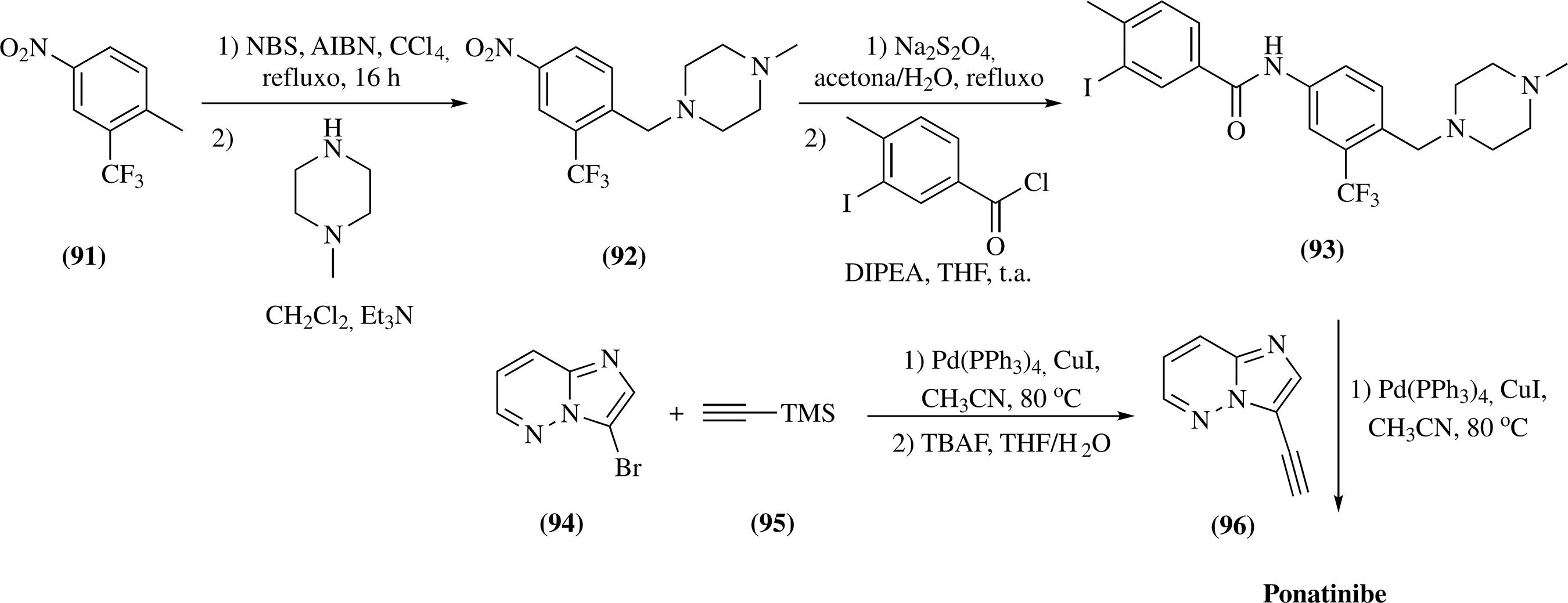The chronic myeloid leukemia (CML) is characterized by presence of the Philadelphia chromosome (Ph), originated from the translocation between chromosomes 9 and 22. This chromosome generates an abnormal protein tyrosine kinase which is responsible for tumor cell proliferation. The emergence of tyrosine kinase inhibitors (TKIs) has transformed the treatment of CML and imatinib being the first representative of this class. Although treatment with imatinib has reached surprising results, approximately 30% of patients exhibited resistance, especially in later stages of the disease. This fact stimulated the development of novel BCR-ABL enzyme inhibitors drugs classified as tyrosine kinase inhibitors (TKIs) of second and third generations. The TKIs have different chemical functions in their structure, and the knowledge of synthetic methods for preparation of these compounds can be a powerful tool for the development of new derivatives. The five approved BCR-ABL Tyrosine Kinase inhibitors (TKI) used in Chronic Myeloid Leukemia (CML) are reviewed aiming the main synthetic routes, highlighting the advantages and disadvantages associated with them.
Keywords:
chronic myeloid leukemia; tyrosine kinase inhibitors; imatinib mesylate








